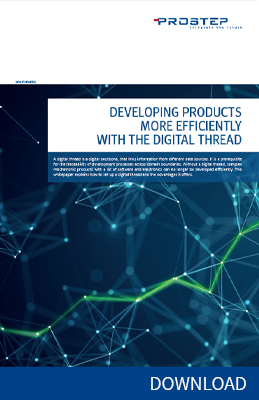The event was a resounding success for all participants. About 100 students of computer science, information technology, mechanical engineering, and other disciplines at the Universities of Bayreuth and Augsburg and Ludwig Maximilian University of Munich spent two days working on practice-oriented use cases for blockchain and developed impressive proofs of concept (POC) to this end. The fair pay team supported by PROSTEP emerged victorious in the competition.
PROSTEP set the participants at the blockchain hackathon the challenge of making a license for drinking coffee within a fair pay-per-use model that was tamper-proof. The fair pay team completed the task with flying colors. Dr. Martin Holland, Head of Business Development at PROSTEP, handed over a check worth €2,500 to the winning team at the end of the competition.
In total, the students developed solutions for 16 different use cases that they had been instructed to complete by the jury sponsors. The PROSTEP representatives were delighted with how enthusiastically, purposefully, and innovatively they addressed the topics, especially considering the time pressure they were under. The interdisciplinary teams had to complete their task between 12 p.m. on Friday and 3:45 p.m. on Saturday, which meant that it was a very short night for all participants. They were supported throughout by experts from the Fraunhofer Blockchain Lab, company representatives, and start-ups. During the eagerly anticipated award ceremony, the teams received attractive prices from the individual partner companies, as well as prize money amounting to €5,000.
As a jury sponsor, PROSTEP had the opportunity to present the company to participants at the blockchain hackathon, as well as to show them the demonstrator of the Secure Additive Manufacturing Platform (SAMPL), a secure end-to-end solution for supplying 3D print data using blockchain technology. This piqued great interest, not only among the students, but also among the other jury sponsors, who included representatives from BMW, IBM, metafinanz, Rehau, and T-Systems.
“We have been working intensively on blockchain technology for the last two years. That is why it was only logical that we participated in this first hackathon, and it most definitely won’t be our last,” says Holland. “The entire event was very well-organized, and we were able to reach out to students who may very well become our employees in the future.” He has good reason to believe this will happen: One of the participants has already asked if PROSTEP would be able to help him with his bachelor’s thesis.
